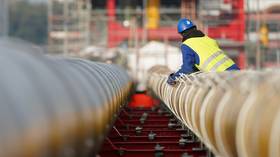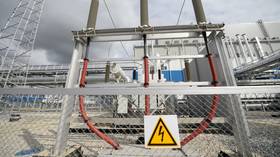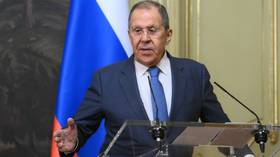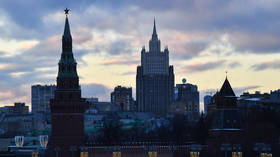Germany completes first LNG import terminal

German authorities have inaugurated the first of five planned floating terminals, intended to receive liquefied natural gas (LNG) at the North Sea port of Wilhelmshaven. The country is scrambling to secure energy supplies as it tries to move away from Russian pipeline gas.
Germany is reportedly short about 50 billion cubic meters of gas in yearly deliveries as a result of the reduction of imports from Russia. The nation’s previous attempts to diversify gas supplies have contributed to the current energy crunch. EU sanctions pressure, technical problems, as well as the sabotage of the Nord Stream pipelines, have further exacerbated the problem.
The facility is expected to become functional around the turn of the year, along with a second floating terminal at the Brunsbuettel North Sea port, according to Economy Minister Robert Habeck, who boasted that the project had been completed in just 200 days.
The Wilhelmshaven floating storage and regasification unit (FSRU), for utility Uniper, will be moored at an expanded pier and will have the capacity to regasify LNG arriving on tankers.
Habeck added that another three FSRUs would be deployed in the coming months – one in Stade on the Elbe River near Hamburg, and two in Lubmin on the Baltic Sea. Another one in Wilhelmshaven will be added in the fourth quarter of 2023.
“The new LNG landing place is a big step towards a secure energy supply,” said Lower Saxony state economy minister Olaf Lies in a statement.
The EU is facing a large-scale energy crisis after imposing several rounds of sanctions on Russia, which was once its biggest natural gas supplier.
The planned terminals are expected to give Germany annual LNG import capacity of at least 29.5 billion cubic meters, roughly a third of the country’s annual gas demand of 90.5 bcm. The LNG supplies will come at a much higher price than Russian pipeline gas.
For more stories on economy & finance visit RT's business section














